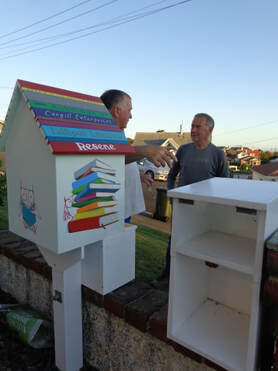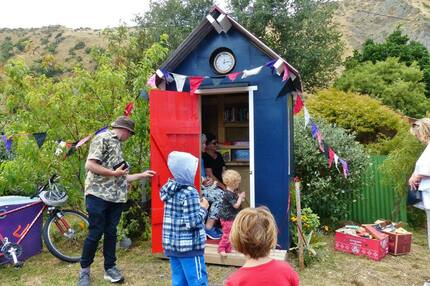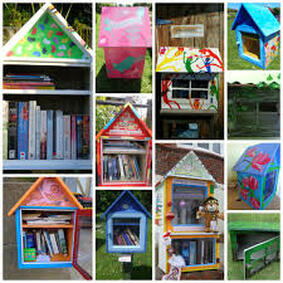Small free community libraries continue to flourish around New Zealand
|
In 2015 Ruth Arnison’s son sent her a photo of a little library in a Melbourne suburban street she liked the idea so much she decided to create something similar in Dunedin.
Ruth says, ‘Once funding was secured we set out to build, paint and distribute 10 of these libraries (we named them Lilliput Libraries) to keen Guardians. The idea, ‘take a book and leave a book’, has been embraced by Dunedin residents to the extent that soon I had a waiting list of people wanting to be Guardians of a Lilliput Library’. Ruth found funding for the first 100 but now asks people to supply their own, directing them to their local Blokes Shed for construction assistance. Guardians are given a plan, a Q&A sheet, and a template of the leaflet which goes in each library explaining how they work. All Lilliputs are added to a map, which directs readers to 197 Lilliput Libraries scattered around New Zealand. |
|
Ruth says, ‘We set out to provide reading material but it has turned out to be more than just a free supply of books. They’re a little like the old corner dairy where people meet and have a chat. People may pass each other, in a Lilliput Library street, with a book in their hand so it’s a conversation starter, “Have you been to the Lilliput Library?” It’s a destination for a daily walk for some of our elderly folk. It’s also been the inspiration behind a short story and a bicycle outing!’
Similar schemes such as Little Free Libraries and Book Crossings have been running for more than 20 years. Independent free community libraries are still popping up all around New Zealand, like this anarchic one in Paekakariki on the Kapiti Coast. |
The ‘Old Whatsisname Memorial Library’ replaces a small cupboard that carried out this function for several years. The new facility boasts seating and solar-powered lighting for evening reading.
The builder of the library, Sam Buchanan, says the library ‘provides a destination for the bored (and especially for those with bored children), an opportunity to opt out of capitalist consumption patterns, and a means by which further production is deemed unnecessary. The library is one means of providing micro-support in opposition to the culture of micro-aggressions that is currently dominant.’ Long may these tiny knowledge banks bring communities together! |



